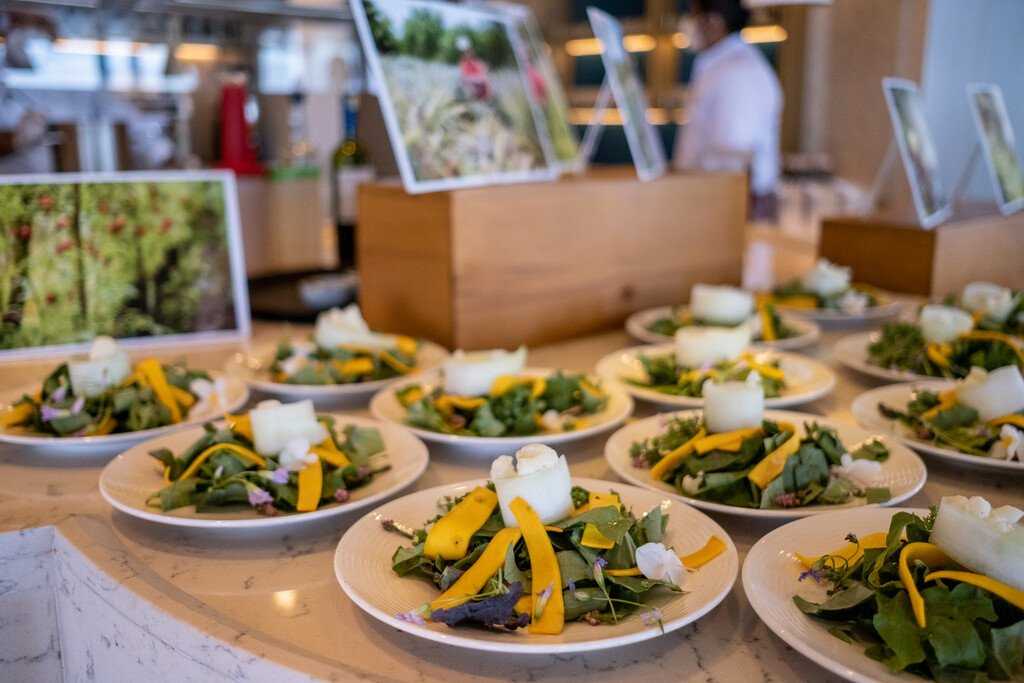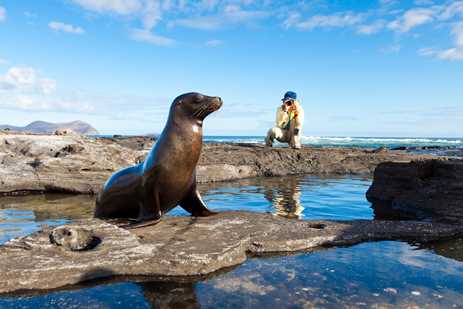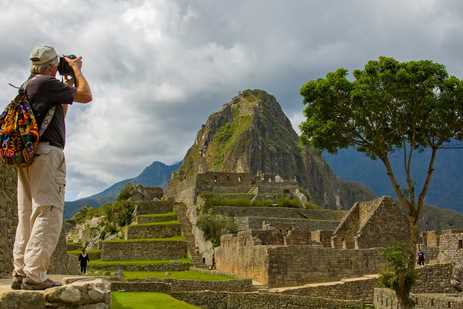Lindblad Expeditions has cultivated a sustainable farm-to-table dining program in the Galápagos designed with a key mission in mind: to support the livelihoods of Galápagos farmers. The first of its kind among expedition cruise lines in the archipelago, the program gives a boost to the local economy—and a fresh taste of the archipelago to travelers.
Get Inspired By Photos, Videos, Webinars, Stories, And Exclusive Offers.
Sign Up
Any given day on a Galápagos expedition is likely to bring a host of new experiences—and for many travelers, the first moments of discovery happen over breakfast. Local dishes like bolon de verde, a meat-and-cheese dumpling wrapped in mashed plantains, are served alongside fresh papaya and tamarillo and cups of Galápagos-grown coffee. With every meal here, guests are getting a literal taste of their surroundings. Everything served on the ship, from your morning juice to your evening cocktail, is sourced from either the islands or mainland Ecuador.
To provision meals for the National Geographic Endeavour II and National Geographic Islander II, Lindblad Expeditions must acquire between 30 and 40 tons of local and organic produce annually, an undertaking that relies on Galápagos farmers. According to Ana Esteves, Lindblad’s Vice President of Hotel Operations, the islands and their people inspired the fleet’s farm-to-table dining program, which she founded in 2017. She says, “I saw so much potential for the beautiful, lush land. I reached out to the Minister of Agriculture, and we visited some of the farmers.”









